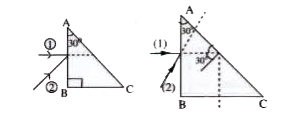There is oozing of semisolid material which forms a tough membrane over air passage .The disease is
whooping cough
diphtheria
pulmonary tuberculosis
measles
The correct Answer is:B
Step-by-Step Solution:
1. Understand the Symptoms Described: The question describes a condition characterized by the oozing of semi-solid material that forms a tough membrane over the air passage. This suggests a respiratory disease that leads to the formation of a membrane.
2. Evaluate the Options:
- Option A: Whooping Cough (Pertussis): Caused by Bordetella pertussis, this disease is characterized by severe coughing fits but does not form a membrane over the air passage. Symptoms include runny nose and sneezing. Therefore, this option is incorrect.
- Option B: Diphtheria: Caused by Corynebacterium diphtheriae, diphtheria is known for forming a pseudomembrane in the throat and nasal passages. This membrane can be tough and may appear greenish, bluish, or blackish. It is a highly contagious respiratory disease, and the symptoms include low-grade fever, malaise, weakness, and a characteristic "bull neck" appearance due to swollen lymph nodes. This option fits the description given in the question, making it a likely correct answer.
- Option C: Pulmonary Tuberculosis: Caused by Mycobacterium tuberculosis, this disease primarily affects the lungs and is characterized by symptoms such as cough, weight loss, and night sweats. It does not form a membrane over the air passage, so this option is incorrect.
- Option D: Measles: Caused by the Paramyxovirus, measles is a viral infection that affects the respiratory tract but does not cause the formation of a membrane over the air passage. Therefore, this option is also incorrect.
3. Conclusion: After evaluating all the options, the disease that matches the description of oozing semi-solid material and forming a tough membrane over the air passage is Diphtheria.
Final Answer: The disease is Diphtheria.
---
- Option A: Whooping Cough (Pertussis): Caused by Bordetella pertussis, this disease is characterized by severe coughing fits but does not form a membrane over the air passage. Symptoms include runny nose and sneezing. Therefore, this option is incorrect.
- Option B: Diphtheria: Caused by Corynebacterium diphtheriae, diphtheria is known for forming a pseudomembrane in the throat and nasal passages. This membrane can be tough and may appear greenish, bluish, or blackish. It is a highly contagious respiratory disease, and the symptoms include low-grade fever, malaise, weakness, and a characteristic "bull neck" appearance due to swollen lymph nodes. This option fits the description given in the question, making it a likely correct answer.
- Option C: Pulmonary Tuberculosis: Caused by Mycobacterium tuberculosis, this disease primarily affects the lungs and is characterized by symptoms such as cough, weight loss, and night sweats. It does not form a membrane over the air passage, so this option is incorrect.
- Option D: Measles: Caused by the Paramyxovirus, measles is a viral infection that affects the respiratory tract but does not cause the formation of a membrane over the air passage. Therefore, this option is also incorrect.
Topper's Solved these Questions
Similar Questions
A disease characterised by oozing of semisolid material in throat forming a tough membrane is
View SolutionIn which form is the food material stored in fungi?
View SolutionWhich is the correct sequence of air passage during inhalation ?
View SolutionWhich is the correct sequence of air passage during inhalation ?
View SolutionThe property of a body by virtue of which it tends to regain its original configuration as soon as the deforming forces applied on the body are removed is called elasticity. Coefficient of elasticity, E=stressstrain=F/aΔl/l=Flπr2(Δl) The value of E depends upon nature of material. A material with higher value of E is said to be more elastic. Read the above passage and answer the following question : (i) Which is more elastic steel or rubber ? Why ?
View SolutionPannus' is formed in which disease .
View SolutionA specialised differentiated form of cell membrane which is formed by infloding of cell membrane is called A–– in prokaryotic cell :
View SolutionWhich of the following epithelium is most suitable for the quick exchange of materials through membranes via filtration or diffusion?
View SolutionABC is right angled prism kept in air. A ray (1) is incident on the face AB along the normal. Another ray (2) is incident on the face AB such that it emerges normally form the face AC. Then

The minimum value of refractive index of the material of the prism for which the ray 1undergoes TIR on the face AC is
View SolutionWhich one forms the continuous part of cell membrane
View Solution
